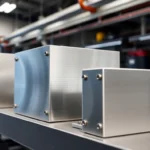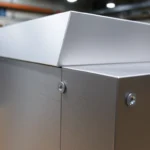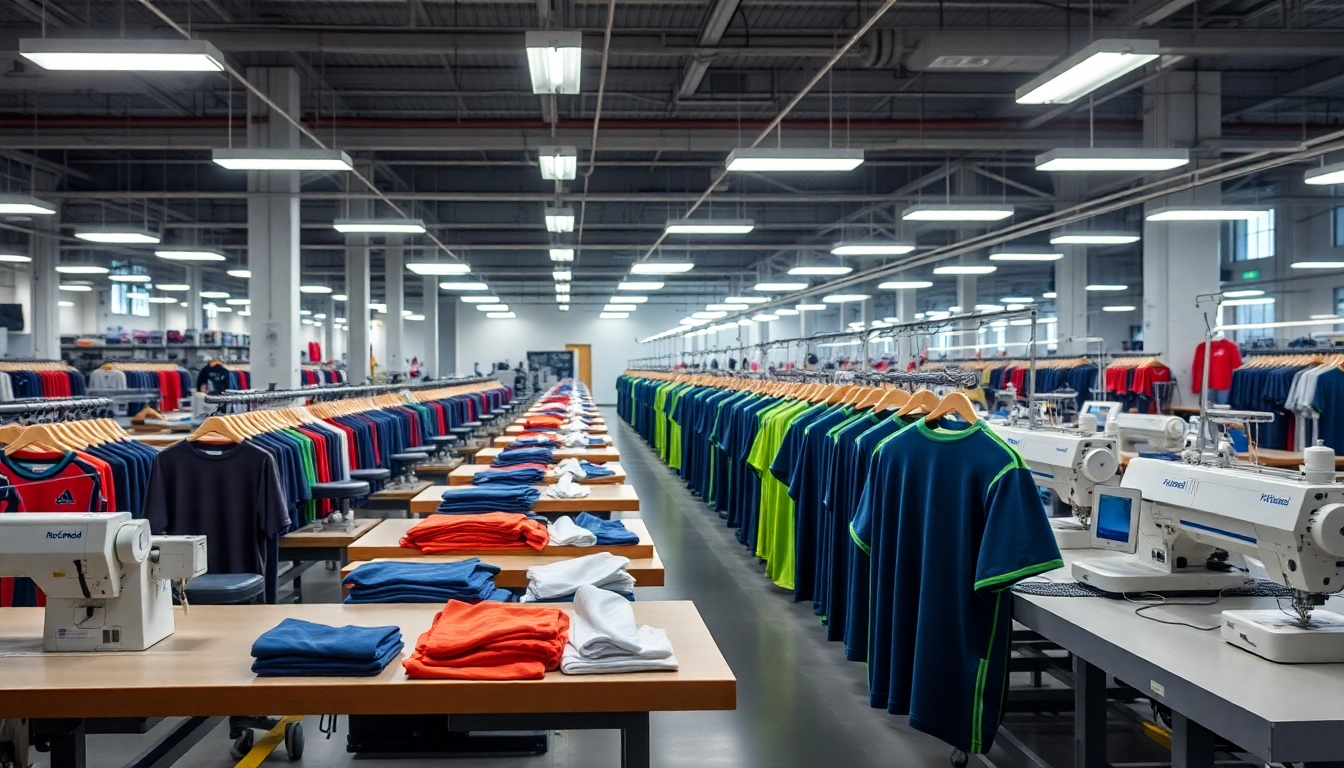Understanding the Role of Clothing Manufacturers in the Sportswear Industry
Clothing manufacturers are the backbone of the sportswear industry, bridging the gap between innovative design concepts and functional, high-quality apparel that meets the demands of athletes, fitness enthusiasts, and casual consumers alike. In a landscape where brand reputation and product performance are crucial, choosing the right manufacturing partner can significantly influence your brand’s success. Leading providers, especially in Pakistan—a global hub for quality garment production—offer capabilities that balance premium customization, cost-effectiveness, and sustainability. For those seeking a reliable Clothing Manufacturers, understanding industry standards and production processes is essential to making informed decisions.
What Defines a Top Clothing Manufacturer in Pakistan?
Pakistan has established itself as a global leader in apparel manufacturing, owing to its vast network of skilled labor, advanced technological infrastructure, and a reputation for quality. A top clothing manufacturer in Pakistan is characterized by several key criteria:
- Low Minimum Order Quantities (MOQs): Facilitates startups and small brands to enter the market without heavy investment, often starting as low as 50 pieces per design.
- Advanced Manufacturing Technologies: Adoption of cutting-edge cut & sew techniques, sublimation, screen printing, embroidery, and automated cutting machines ensures precision and consistency.
- Sustainable Practices: Commitment to eco-friendly processes such as waste reduction, water conservation, and use of sustainable fabrics.
- Premium Customization: Capabilities for private labeling, branding, custom labels, packaging, and bespoke designs that support brand differentiation.
- Comprehensive Service Range: End-to-end support covering fabric sourcing, design consultation, production, quality assurance, and logistics.
Companies like Extreme Sportswear exemplify these standards by serving over 3,000 brands worldwide, emphasizing quality, affordability, and timely delivery, positioning themselves as industry leaders.
The Evolution of Custom Sportswear Manufacturing
Over the past decade, the sportswear manufacturing industry has undergone a transformation driven by technological innovation and consumer preferences. Traditional mass production has shifted towards custom, small-batch, and on-demand manufacturing, facilitating brands to create unique, versatile, and performance-driven garments. The rise of private label manufacturing allows brands to build distinct identities without the need for large inventory investments, thanks to flexible minimum order quantities and rapid turnaround times.
This evolution has also been supported by technological advances such as all-over sublimation printing, custom embroidery, and laser-cut ornamentation, enabling intricate designs and brand-specific embellishments that were previously challenging to produce at scale. Sustainable manufacturing practices have become more integrated, with brands demanding eco-conscious materials and processes. Leading manufacturers now incorporate modern machinery with environmentally friendly protocols, aligning with global sustainability trends and consumer expectations.
Key Factors for Selecting a Reliable Clothing Manufacturer
Partnering with the right clothing manufacturer requires careful assessment across multiple dimensions:
- Quality Assurance: Check for ISO certifications, product testing procedures, and sample evaluations to ensure durability, color fastness, and craftsmanship.
- Fabric and Material Selection: Access to a wide range of fabrics—performance textiles, organic cotton, recycled materials—enables product innovation.
- Customization Capabilities: Ability to execute private labels, custom prints, embroidery, and packaging that reflect your brand identity.
- Turnaround Time & Delivery: Efficient processes and logistics networks ensure consistent, on-time deliveries, crucial for marketing campaigns and inventory management.
- Cost Competitiveness: Competitive rates without compromising quality, owing to optimized manufacturing processes and bulk procurement strategies.
- Sustainability & Ethical Manufacturing: Ethical labor practices, eco-friendly production, and transparent supply chains are increasingly valuable factors.
- Technical Expertise & Innovation: Access to the latest printing techniques, cut and sew technology, and design support can elevate your product offerings.
Manufacturing Processes and Technologies Used by Leading Clothing Manufacturers
Cut & Sew Techniques for Precision Customization
At the core of bespoke sportswear production lies the cut & sew method—a meticulous process that involves pattern making, fabric cutting, and assembly. This allows for maximum customization, precise fit, and complex design features. Modern manufacturers employ automated cutting tables with laser guidance to ensure minimal waste and exact replication of patterns, whether creating compression wear, jackets, or leggings.
For instance, laser-cut ornamentation enables functional and decorative elements with clean, minimalistic edges, enhancing both aesthetics and performance. The flexibility of cut & sew techniques allows brands to develop multi-panel designs, color blocking, and intricate stitching that elevate the product quality and visual appeal.
Innovative Printing and Embroidery Services for Unique Designs
Advanced printing and embroidery techniques are fundamental to creating eye-catching sportswear. Sublimation printing—particularly all-over sublimation—permits full-color, high-resolution designs covering the entire garment. This technique is ideal for vibrant logos, patterns, and custom artwork, ensuring durability and color longevity.
Screen printing, available in regular and all-over formats, provides a cost-effective solution for simple designs and branding. Custom embroidery adds a tactile element, offering a sense of luxury and durability for logos and text. Features like digitized embroidery and machine-made stitches facilitate high-quality, consistent branding on apparel like sports bras, jackets, and caps.
Utilizing Sustainable Practices in Sportswear Production
Modern sportswear manufacturers prioritize sustainability by adopting eco-friendly materials such as recycled polyester, organic cotton, and biodegradable trims. Waterless dyeing techniques, low-impact inks, and waste reduction strategies help minimize environmental footprints. Companies like Extreme Sportswear integrate these practices into their core operations, aligning with global trends and consumer demand for responsible brands.
Additionally, efficient production workflows, energy conservation, and supply chain transparency support sustainability. This approach not only benefits the planet but also enhances brand reputation, appealing to eco-conscious consumers seeking authenticity and responsibility.
Choosing the Best Clothing Manufacturers for Your Brand
Low Minimum Order Quantities and Fast Turnaround
For startups and small brands, low MOQs are critical—allowing flexibility and reducing financial risks. Reliable manufacturers like Extreme Sportswear offer as low as 50 units per color or design, empowering brands to test new ideas without large investments.
Fast turnaround times, often within 2–4 weeks, enable brands to respond swiftly to market trends, launch campaigns on schedule, and manage inventory effectively. Efficient communication channels, optimized workflows, and local production facilities in Pakistan facilitate these quick deliveries.
Quality Assurance and Material Selection
High-quality fabrics and rigorous inspection protocols ensure product durability and customer satisfaction. Leading manufacturers provide options ranging from performance elastics for activewear to eco-friendly textiles, allowing brands to tailor their offerings. Sampling services help evaluate fabric feel, fit, and print compatibility before mass production.
Cost-Effectiveness and Competitive Pricing Strategies
Manufacturers leverage bulk procurement, automation, and streamlined processes to offer competitive rates. The ability to customize without excessive premiums makes Pakistan-based manufacturers particularly attractive for brands aiming for affordable premium quality. Transparent quoting, clear pricing structures, and no hidden fees build trust and facilitate budgeting.
Integrating Private Label and Branding in Sportswear
Designing Custom Labels, Packaging, and Shipping
Branding elements—labels, tags, packaging—are vital for establishing a distinctive market presence. Manufacturers support custom label digitization, woven tags, and branded packaging options, aligning with brand identity. Creative packaging enhances unboxing experiences and fosters customer loyalty.
Building a Strong Brand Identity with Custom Apparel
Consistent branding through custom sportswear—logos, slogans, color schemes—creates a memorable image. A reliable manufacturer streamlines this process by offering cohesive solutions from fabric development to final packaging. This holistic approach ensures your clothing line resonates with your target audience and stands out in a crowded market.
Case Studies: Successful Brands Collaborating with Pakistan Clothing Manufacturers
Numerous startups and established brands have leveraged Pakistani manufacturers to build thriving businesses. For example, sports brands partnering with companies like Extreme Sportswear have achieved high-quality, customized collections with short lead times and low MOQ, enabling rapid market entry and brand growth.
Future Trends and Opportunities in Sportswear Manufacturing
Smart and Performance-Enhancing Fabrics
The integration of wearable technology—such as moisture-wicking fabrics, antibacterial finishes, and embedded sensors—is revolutionizing sportswear. Manufacturers are investing in R&D to develop responsive textiles that improve athletic performance and comfort.
Expanding Sustainability Initiatives
Sustainable production will continue to drive innovations such as circular manufacturing models, biodegradable fabrics, and carbon-neutral logistics. Brands that prioritize transparency and eco-credentials can gain competitive advantages in an increasingly conscious marketplace.
Leveraging Technology for Digital Customization
3D design tools, virtual prototyping, and online customization platforms enable brands to visualize products before production, reducing errors and increasing consumer engagement. Manufacturers adopting digital workflows streamline operations and shorten time-to-market, fostering faster innovation cycles.









